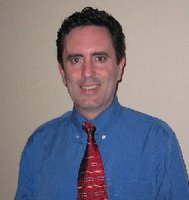Aftergood Opens Up The Government
“Open government and free press uncover dishonesty and deception and create the opportunity to correct the human experience (Paraphrase of Steven Aftergood).”
Steven Aftergood, director of the Federation of American Scientists (FAS) Project on Government Secrecy, was invited to Yeshiva University for the first time, to speak to our Media and Politics class. In his presentation he addressed mainly the issue of government se
 crecy, its advantages, disadvantages, and why we should care. His speech represented to many a kind of reality check on what the government of the United States is holding back from us; including astounding statistics which opened our eyes to the vast bureaucracy of secrecy. His primary point though, and the basis for which he conducts his work, is what he called “proportion”. That there does exist a boundary between what we should know, and what we shouldn’t know; our government however, is way above that boundary.
crecy, its advantages, disadvantages, and why we should care. His speech represented to many a kind of reality check on what the government of the United States is holding back from us; including astounding statistics which opened our eyes to the vast bureaucracy of secrecy. His primary point though, and the basis for which he conducts his work, is what he called “proportion”. That there does exist a boundary between what we should know, and what we shouldn’t know; our government however, is way above that boundary.He began his presentation with an explanation of “Constitution”. In a democracy, the sharing of information is vital. Since all policy-makers are elected, the public need to know what the policies are in order to vote properly. The constitution is the means of channeling those upper echelons of the policy-producers down to the public. By holding back on information and policy, the government would be limiting our capabilities as citizens. As an example, Mr. Aftergood proposed that if the government had publicized the threat of terror attacks in September 2001, things would have been different.
What exactly is the government withholding, and should they be? To answer thins, Mr. Aftergood presented us with statistics. The are approximately 14.2 million classifications made per year, and $9,000,000,000 spent to secure it via safes and human personnel. The content of these classifications ranges from the obvious to the ridiculous. There is “Genuine National Secrecy”, which is like war plans and intelligence sources, etc. then there is “Political Secrecy” which is the cover up of potentially vulnerable government projects. The last kind was “Bureaucratic Secrecy”, which is the level of secrecy which anyone can obtain, but must have a certain reason. Should these things be classified? Yes. So, what does Aftergood do? He is a man of proportion. He believes that there are many documents that the government keeps secure that should not be. For example, he was the plaintiff in a lawsuit against the CIA, the result of which was the revelation of the annual government spending on the CIA’s operations. This revelation now gives citizens a better understanding of the destination of the tax money. The classification of that seems reasonable at first though. Mr. Aftergood showed us the Navy Laundary Code, which is classified, as well as the phone number directory for the Department of Defense. These are just some proofs of the disproportional effort the government expends in secrecy. There are also some things which deserve classification, but are however declassified. For example, a nuclear fusion bomb blueprint from 1947 – what is that doing out in the public!?
Relevant to our Media and Politics class was a contemporary example of manipulative classification. The media wanted to take pictures of flag draped coffins of American soldiers from Iraq, to publish in newspapers. The DOD would not hear of it though. As it turns out, the government was trying to manipulate the American public into thinking that everything is going well in Iraq, and if these pictures were taken, it might lower the morale of the people. They gave in and the pictures were taken.
As a practical implication of these issues, Mr. Aftergood brought up the statement by Tony Bennet, in which he demands the incarceration of the reporters who won the Pulitzer Prize for their articles which revealed to the public certain things that the government wanted to keep secret. If this were to be true, argued, Mr. Aftergood, it would truly be a violation of the 1st amendment and even I would be thrown into jail.
In conclusion, I came away with the feeling that there is too much the government is withholding from us, and I appreciate the work of Mr. Aftergood in attempting to proportion the information.

1 Comments:
Ummmm, I think you mean Bill Bennett, yes? There is much here by way of sharp observation -- a few good, thorough edits might make it a tighter, more coherent argument, and less of a ramble.
Post a Comment
<< Home